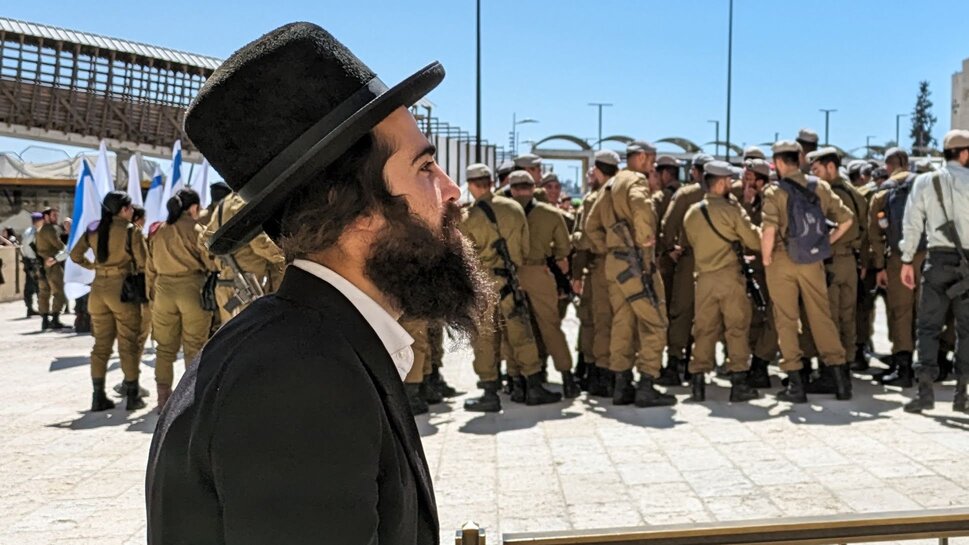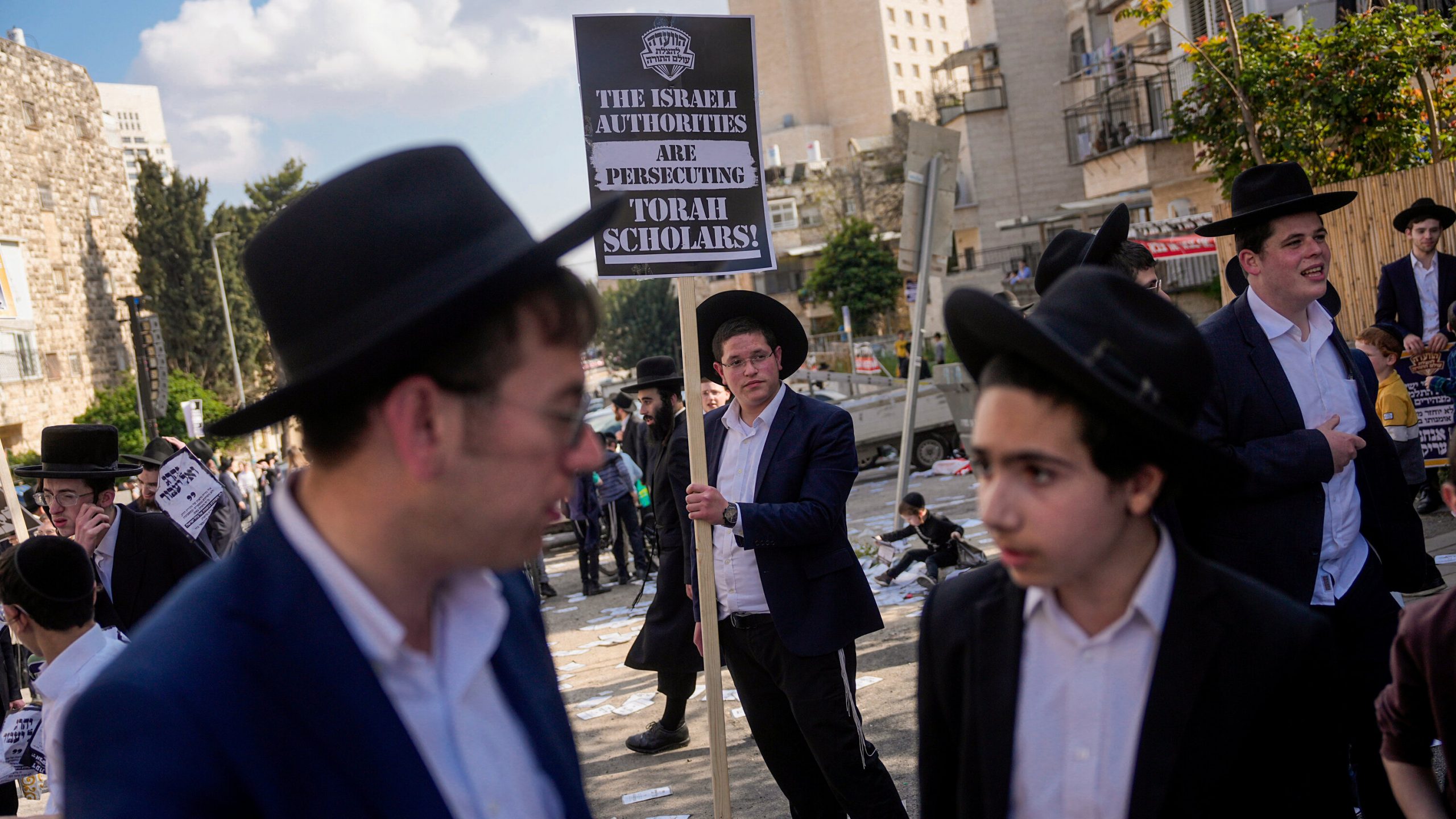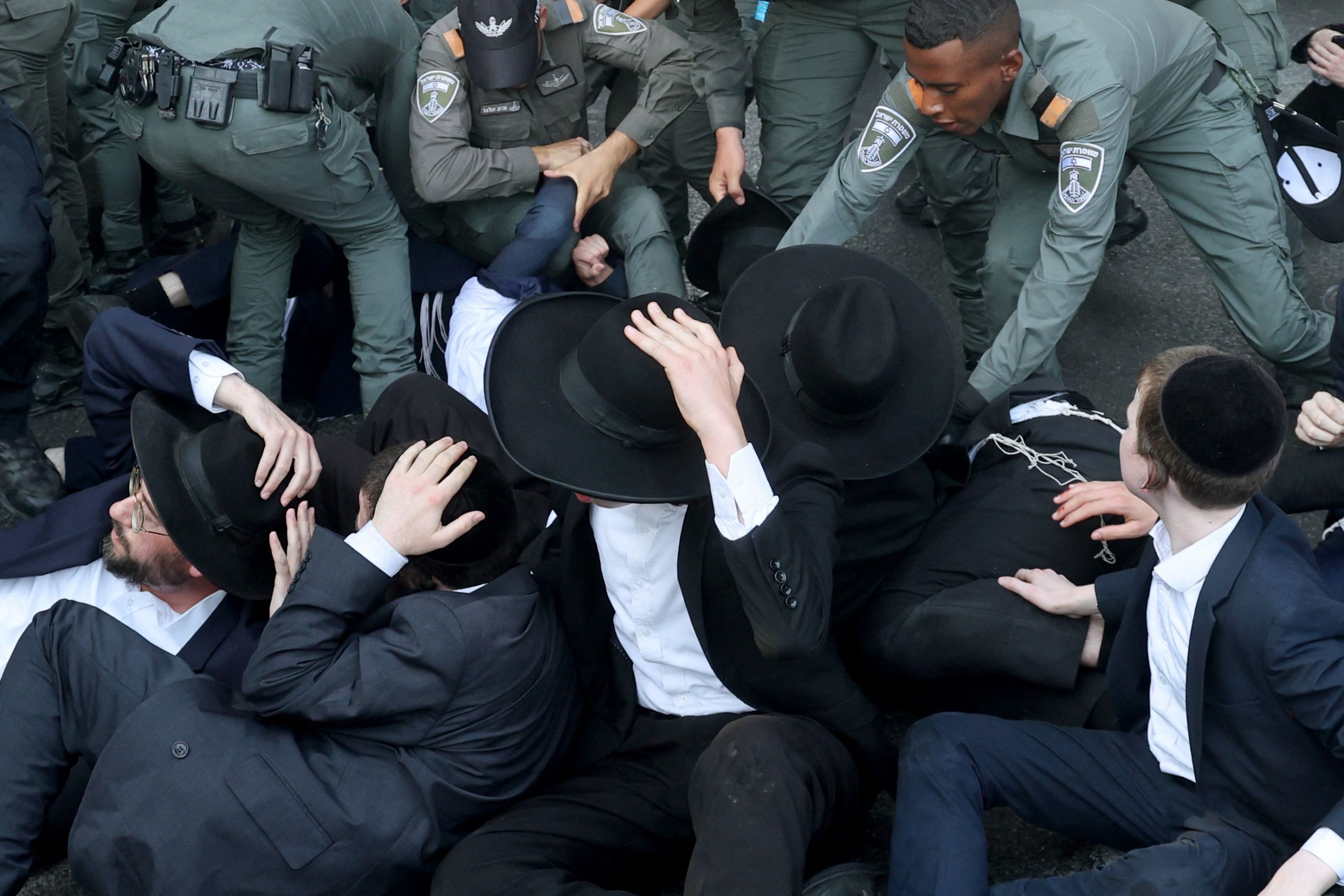
Israel’s Supreme Court has decided that the government must commence drafting ultra-Orthodox men for military service.
The significant ruling could present a major challenge for Prime Minister Benjamin Netanyahu’s governing coalition. On Tuesday, Israel’s Supreme Court ruled to initiate the drafting of ultra-Orthodox men for military service and to halt government funding for seminaries whose students avoid conscription.
The decision underscores a longstanding issue in Israeli society that has become more contentious since the beginning of the war with Hamas in Octobe. Israel implements a compulsory military service system, but ultra-Orthodox Jews, known as Haredim, have been exempt from this obligation since the founding of the state.
Military burden: Increased defense spending and mobilization of reservists increase dissatisfaction with the exemption of Haredim from service
In late 2022, two religious parties allied with Netanyahu’s Likud party to establish a government, aiming to codify their longstanding exemption from military service into legislation.
The government’s focus on reducing the judiciary’s powers throughout much of 2023 stemmed partly from the court’s push for equality.
The judges noted that the current system “creates serious discrimination between those who are required to serve and those for whom conscription rules are not followed.”
Since the October 7 Hamas attack triggered conflict in the Gaza Strip, Israel has mobilized hundreds of thousands of reservists. Many secular Israelis contend
that the war and the likely increase in defense spending in coming years due to the threat from organizations such as Hezbollah in Lebanon make exempting religious Jews from military service even more unacceptable.
“Today, amid a challenging war, the burden of inequality is more keenly felt than ever,” stated the court in a unanimous ruling delivered by an expanded panel of nine judges. The possible recruitment of Drafting Haredi men into military service could potentially stimulate Israel’s economy by alleviating pressure on the technological and business sectors, in which their labor constitutes a significant part of the country’s reserve force. The proposal to extend military service for both conscripts and reservists is projected to incur expenses and productivity losses totaling 100 billion shekels ($27 billion) over the next decade. This amount could be reduced if the ultra-Orthodox are recruited.

Exemption from service: views and challenges in Israeli society
The tradition of exempting Haredim from military service started when Israel’s first prime minister, David Ben-Gurion, permitted around 400 Haredi students to pursue studies in seminaries or yeshivas instead of joining the military.
This policy had little impact when the Haredim were a tiny minority. However, as Israel has become more prosperous, the size of this group has increased dramatically, and now makes up about 14% of the country’s 10 million population, including a significant proportion of Israelis of military age. The court cited the state’s statement that there are currently 63,000 young Haredi men eligible for military service.
Opposition leader Benny Gantz, who recently exited Netanyahu’s security cabinet, criticized the prime minister for the stalemate and called on him to reach agreements that meet the country’s security needs rather than isolating different social groups.
A spokesperson for the Likud party stated that the “landmark conscription law” was already being reviewed in parliament and would “greatly expedite the enlistment of the ultra-Orthodox community.” Elections are not scheduled until 2026, and haredi parties may decide it is in their interests to support Netanyahu rather than try to form a new coalition with more left-wing parties.
Trial in court
Before October 7, the Israeli government made reform of the country’s judicial system a priority, leading to widespread protests, especially among secular Israelis who expressed fears that the planned changes could pose a threat to the country’s democracy. Haredim, known for their traditional attire (white shirt, black trousers, coat, and skullcap).

are rooted in Eastern Europe, strive to maintain their communal life of study and prayer. They fear that the forced conscription of their youth into the Israeli army will disrupt their secluded lifestyle and lead them to the temptation of worldly sin.
Many Haredi men follow a traditional lifestyle, immersing themselves in the study of sacred texts in large seminary halls, just like their fathers. These educational institutions play a central role in their community, providing spiritual education and life direction. However, many of them face challenges on their way to integrating into Israel’s economic life.
Limited employment opportunities have a significant impact on Haredi men. In most cases, they depend on government subsidies because their curriculum does not teach the job skills needed for a successful career in a modern economy. In this context, their wives often become the main breadwinners in the family, working to ensure financial stability.
For Haredi men, forced conscription into the Israeli army or alternative civilian service pose serious moral and cultural challenges. These young people who are committed to a religious lifestyle often fear that military service might disturb their religious practice and disconnect them from their traditional community.
Thus, there is a long-term tension between the preservation of Haredi cultural and religious traditions and the need to integrate into modern Israeli society. This dialogue remains key to the country’s political and social debates regarding the rights and responsibilities of members of various communities.
